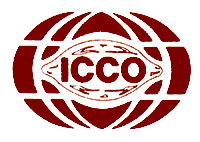LONDON, UK — Over 70 stakeholders from Europe, the US, Africa, Latin America and Southeast Asia took part in the ICCO’s second International Workshop on Cocoa Certification in Zurich, Switzerland on 6 and 7 March, the Organization reported today.
The Workshop, organized in close cooperation with the United Nations Forum on Sustainable Standards (UNFSS), included cocoa producers, representatives of cocoa exporting and importing country governments, the cocoa and chocolate industry, certification bodies, civil society and international agencies.
Following up on the first ICCO Cocoa Certification workshop, held in Douala, Cameroon in June 2013, the Zurich workshop added to the interactive combination of presentations, interviews and panel discussions with a new forum session that invited a cross section of stakeholders to discuss the important issues in more intimate groups of 12.
The tremendous energy generated by this forum had very positive participation and results.
At the workshop, ICCO-commissioned consultant Aimee Russillo presented a working document that provided the broad outline to allow the participants to begin creating a reference framework of commonalities for sustainable cocoa.
The main objective of the workshop was to assist existing and emerging national and international sustainability-related standards to develop a common framework, using a set of commonly agreed pre-competitive, minimum requirements, up to a threshold level, beyond which individual certification standards would be free to compete with one another based on their unique specific requirements, taking into account the demands of individual consumer market segments.
There was agreement at the end of the workshop that there are benefits for all stakeholders along the value chain in coming up with a simplified common language, a reference point and guide, prioritizing actions and strategies, being transparent about the roles and actions of those involved, and about progress on key issues.
Other benefits, the stakeholders found, were flexibility, scalability and accessibility, affordability and comparing indicators for impact assessment and measurements, as well as reducing auditing procedures and costs.
The stakeholders agreed that long term sustainability in the cocoa sector required reaching out to the unorganized cocoa farmers (estimated at 80% of the total) to provide them with the required assistance.
While recognizing that sustainability in cocoa is a shared responsibility between all stakeholders, the participants also understood that certification is only one tool within a group of interventions supporting the sustainable development of the sector.
Other instruments, such as adequate investments in farmers, in order to address the production and supply side for sustainable production are also necessary.
This has to be complemented by investments in sustainable trade and non-monetized, public good infrastructure. Stakeholder cooperation in the framework of national platforms for public private partnerships (PPPs) is a critical success factor.
PPPs with governments as lead actors, including all stakeholders in an inclusive, transparent and participatory approach, are the best vehicles to deliver sustainability, and existing standard systems should aim to operate within the PPPs.
A continuous improvement process, including key impact indicators to monitor and evaluate actions, is necessary for the common framework to make step-by-step progress. There must be information transparency, and data must be available and shared at all levels.
The ICCO and UNFSS will continue to support and facilitate the development of the common framework as a guide for cocoa sustainability.
They will particularly focus on the gaps identified by the participants in the economic pillar of sustainability, under which the producer should be adequately rewarded.
A full report of the Zurich cocoa certification workshop will be published by the ICCO shortly.




















